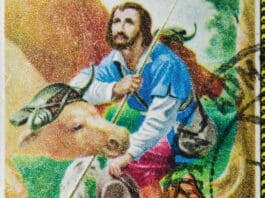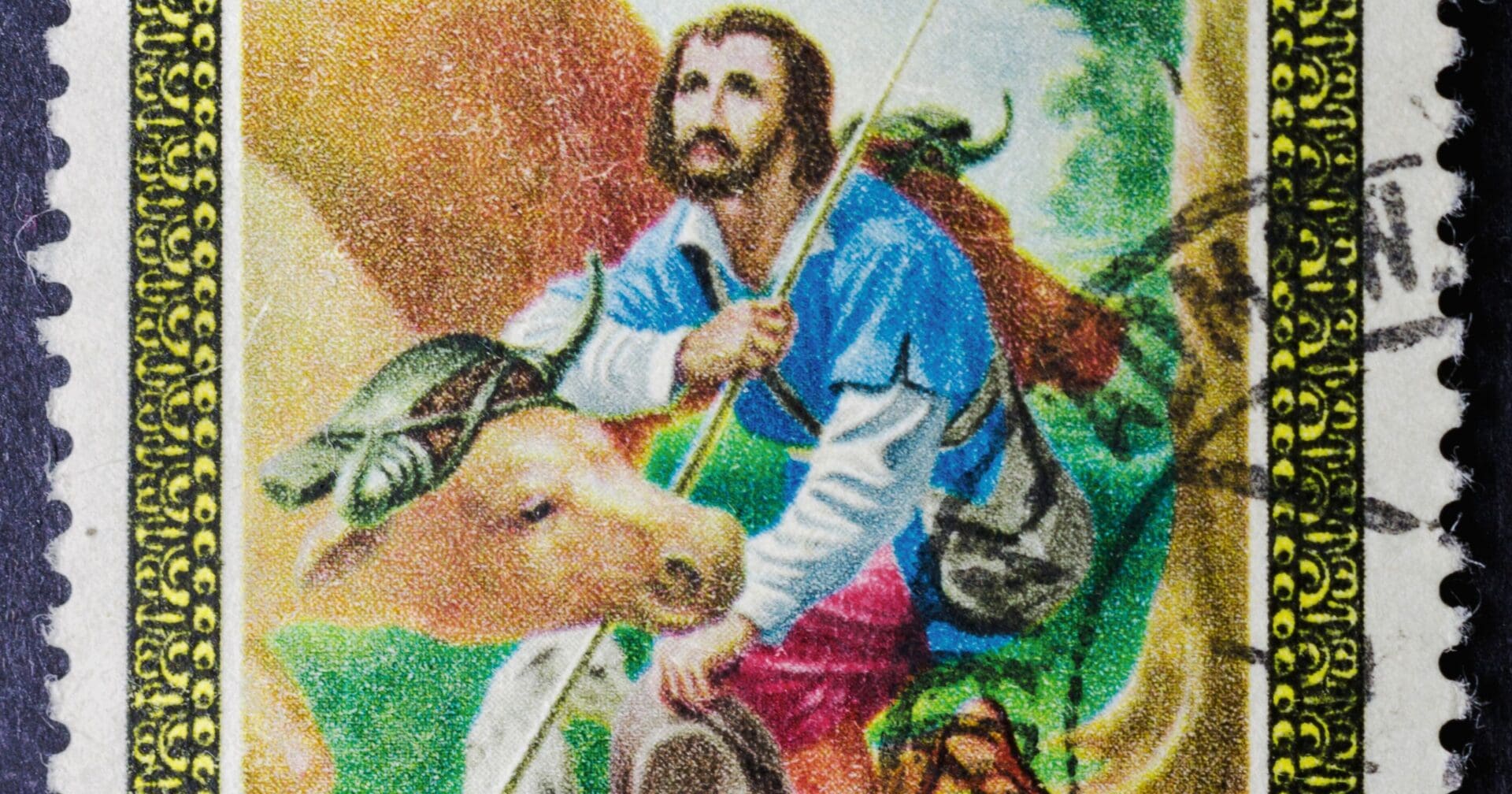
When he was barely old enough to wield a hoe, Saint Isidore the Farmer entered the service of John de Vargas, a wealthy landowner from Madrid, and worked faithfully on his estate outside the city for the rest of his life. He married a young woman as simple and upright as himself who also became a saint—Maria de la Cabeza. They had one son, who died as a child.
Isidore frequented Holy Mass every morning but often reported to work late. Late, though he was, his plowing was nevertheless accomplished by angels that resulted in three times more productivity. His coworkers and his boss witnessed such miraculous events and accorded Isidore with great respect.
All day long, as he walked behind the plow, he communed with God. Many marvelous happenings accompanied his lifelong work in the fields and continued long after his holy death. He was favored with celestial visions and, it is said, the angels sometimes helped him in his work in the fields.
He was known for his love of the poor, and there are accounts of Isidore’s supplying them miraculously with food. He had a great concern for the proper treatment of animals.
He died May 15, 1130, and was declared a saint in 1622 with Ignatius of Loyola, Francis Xavier, Teresa of Avila and Philip Neri. Together, the group is known in Spain as “the five saints.” St. Isidore has become the patron of farmers and rural communities. In particular he is the patron of Madrid, Spain, and of the United States National Rural Life Conference.
Editorial credit: Manuel Esteban / Shutterstock.com
The post Saint Isidore the Farmer appeared first on uCatholic.
Daily Reading
Tuesday of the First Week in Ordinary Time
Reading I Hebrews 2:5-12 It was not to angels that God subjected the world to come, of which we are speaking. Instead, someone has testified somewhere: What is man…
Daily Meditation
Granting God Complete Authority
Click here for daily readings Who or what has authority over your life? Is it your job, your schedule, maybe the demands of parenting? Is it something more subtle such…




